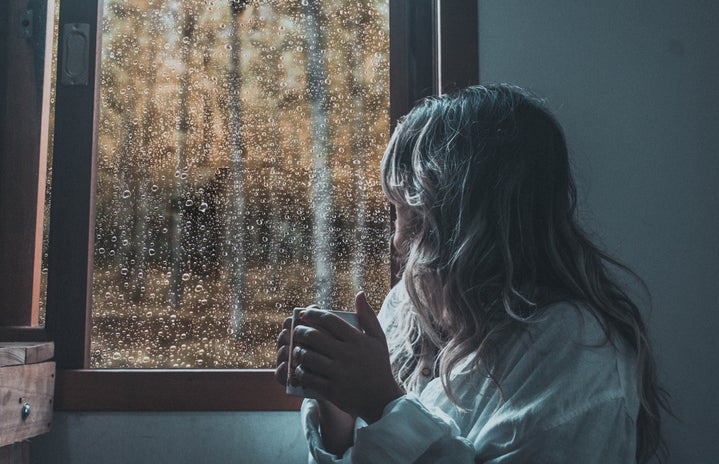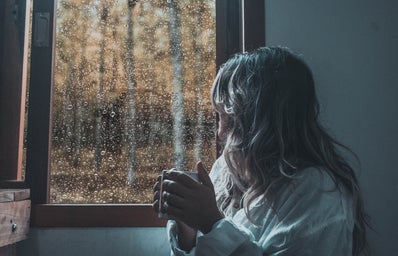While not every female character will have a happy ending to their story, some of the most famous and beloved female fictional characters got dealt some unfair blows. While there are there some fairly obvious ones, such as the heartbreaking death of Beth March in Little Women, not all bad endings result in death. Sometimes the bad ending is due to an unexpected plot twist, loss of a loved one, or natural disaster. What’s worse is that some of these unhappy endings come out of nowhere! As we go over this list, just a reminder that there will be spoilers.
Bonnie Bennett from The Vampire Diaries
The Vampire Diaries is one of my guilty pleasure television shows, but I will never forgive the lousy endings one of the most important characters received. You could argue that Bonnie Bennett isn’t the main character, so there’s no guarantee of her getting a happy ending. However, almost all the other main characters and side characters got a decent, satisfying ending to their story. The main couple, Elena and Damon, got married and lived a happy life. Caroline’s husband Stefan did pass away, but she managed to raise her two daughters and create a wonderful school for magical kids. However, Bonnie Bennett’s one true love, Enzo, died before her eyes, and worst of all, none of the other characters seemed to care! While Stefan wasn’t in control of his vampire powers and didn’t mean to kill Enzo, the act was irreversible. Bonnie has literally sacrificed everything, including her own happiness and her own life, a million times over during the course of this show. All the other characters wouldn’t be alive without her powerful magic! Somehow it doesn’t seem fair that one of the most empowering and selfless characters on the show is dealt an unfair ending to her epic story. Also, I totally understand why fans of the show were disappointed with this character’s ending, especially since Bonnie was one of the only women of color in the cast.

Susan Pevensie from The Chronicles of Narnia
Before I acknowledge how unfair this character’s ending is, it is important to note that author C.S. Lewis passed away soon after writing the final book in the Narnia series. Lewis had been asked about Susan’s controversial story ending and hinted that he planned on writing more stories for her in the future. Unfortunately, fans of the Narnia series will never know what Lewis had in mind for Susan’s character arc. However, as it now stands, Susan is dealt an unnecessarily tragic blow at the series’s conclusion. Even for a kids’ book series, this is pretty dark. There is a final epic battle in Narnia and all the Pevensie siblings die, all except Susan. Susan survived because she wasn’t present at the final battle at all. Unlike her siblings, Susan had always had a restless, tenuous relationship with Narnia. As Narnia is a metaphor for religious belief, it is suggested that Susan just isn’t as religiously fervent as her other three siblings. I would understand Susan deserving a sad ending if she turned evil or renounced Aslan completely, but not being able to say goodbye to her siblings? This seems particularly harsh for an otherwise awesome female character.
Ophelia from Hamlet
No list of unfair character endings would be complete without mentioning Ophelia from Hamlet. Since the famous Shakespeare play is focused solely on Prince Hamlet’s journey, his love Ophelia is swept to the sidelines. On one hand, I applaud Shakespeare for not including a potentially sexist argument between Hamlet and Ophelia, but on the other end, Ophelia’s fate reads like she attached her entire worth to a man. Any way you argue it, Ophelia’s ending is written as a dramatized suicide, something that would definitely not fly by today’s standards. Not only does Shakespeare introduce Ophelia in a makeshift, lazy fashion, but her character’s motivations are never explained. It’s difficult to enjoy a play that features the main character so self-absorbed that he doesn’t notice his former girlfriend is suicidal. You could argue that Hamlet is too busy avenging the ghost of his dead father, but it makes no sense to introduce a potentially important female character just to kill her off later. Not only is Ophelia an underdeveloped female character, but she seems to be killed off just for dramatic effect. It’s not until Ophelia is dead that Hamlet truly mourns their relationship, and needless to say, that is an extremely toxic chain of events.

Leta Lestrange from Fantastic Beasts: The Crimes of Grindelwald
While I enjoyed this movie overall, I still haven’t forgiven the story for the way it treated Leta Lestrange. The movie spends its entire runtime trying to convince the audience that Leta isn’t as evil as other members of her family, most notably Bellatrix Lestrange, but then kills her off like it is nothing. Not only is Leta unceremoniously killed, but it is implied that by doing so, her death brings together the two white wizard brothers who shared feelings for her. Leta had all the qualities that made her seem like she’d be an excellent female protagonist: advanced intellect, purposeful kindness, and a strong sense of right and wrong. However, her character arc was thoughtlessly discarded when she sacrificed herself to save the men she loved. While this was a heroic act, it fails to create a positive impact on audience members. It is thoughtless because it is one of the many times a Black woman has been killed off in a movie series to advance the character arcs of the white male characters.

Daenerys Targaryen from Game of Thrones
This is a fairly obvious one – but even a year after the finale of Game of Thrones – fans of the show are still unhappy with how this main character’s storyline ended. It’s not just that Daenerys didn’t ascend the iron throne, something that fans of the show have been waiting to see happen for seven years, but that such an important feminist character was dealt with such a cruel ending. Even one of the main female villains of the show, Cersei, got to die in the arms of the man she loved. In a strange twist, Daenerys had a similar death scene, but a far more disappointing one. Specifically, the entire final season of the show depicted this fan-favorite character in a confusing light. Daenerys was so beloved by Game of Thrones fans because of how kind and fair a person she was. Can we ever forget when she freed the unsullied? This was a woman who was the champion of underdogs, and although she dealt with her own personal demons, she never put her own ambition over the lives of innocents. This all changed when, in the final season, Daenerys uses her dragons to destroy an entire kingdom, including the civilians living there. This act was so entirely out of character for her that the entire Game of Thrones fandom was grief-stricken. Things only got worse when, in the final episode, Daenerys was killed by the man she loved, Jon Snow. Instead of having a necessary scene of Jon confronting Daenerys for her bloodthirsty behavior, he killed her in a brutal Caesar-style assassination, which I argue was just as out of character and as cruel as Daenerys decimating the kingdom. Instead of having a satisfying season finale, it felt like all Game of Thrones led up to a sexist conclusion: Daenerys was a contender for the iron throne until another man, Jon, has a claim so then Daenerys is hastily tossed away.
Lane Kim from Gilmore Girls
While some fans of this beloved early 2000s show would argue that nothing is wrong with Lane’s story arc, I find it lacking. At first glance, it is definitely happy. Lane marries a fellow musician in her band, and they soon have kids. However, this ending wasn’t something Lane ever wanted. In her own words, she wanted to travel, get some space from her mother, and become a full-time musician. While it’s realistic to say that Lane’s goal of becoming a famous musician was lofty, her other aspirations weren’t. In fact, more than anything she wanted to live somewhere new. Disappointingly, the show concludes with Lane getting married and pregnant before the age of twenty-two. She also remains under the watchful eye of her mother who lives right next door. While Gilmore Girls will always be my favorite series, their treatment of Lane’s storyline is a blemish on the overall show.

Karen from Love Actually
Karen from Love Actually has one of the saddest storylines in movie history, which is only made more powerful by the extraordinary performance of Emma Thompson. While the movie is a quaint romantic comedy, some of the multiple storylines focus on incredibly important issues such as politics, grief, and heartbreak. The latter is experienced by Karen, a devoted mother who finds out that her husband is cheating on her. What follows is an unforgettably heartbreaking moment when Karen realizes that she can’t break down in tears immediately since she has to attend her kids’ school play. So instead, she locks herself in her bedroom and silently cries. During this scene, the cameras pan over photos of her children as well as vacations spent with her husband. If this scene wasn’t bad enough, when Karen later confronts her husband about the affair, he doesn’t apologize or handle it like a mature adult. Instead, Karen’s husband is whiny and mostly upset for himself. At the movie’s conclusion, we see that Karen has chosen to stay with her husband for the sake of her children. Some fans of the movie have argued that since it was Karen’s choice to remain married, then her story isn’t that tragic. While she did choose to remain in the relationship, what is important to focus on is that this storyline is so heartbreaking for women to watch because of how relatable it is. Karen represents many women who have experienced similar heartbreak, so for the sake of all women who didn’t deserve to be cheated on, we have to admit that Karen deserved better.







